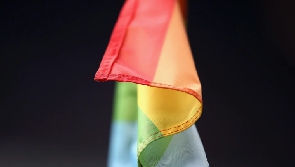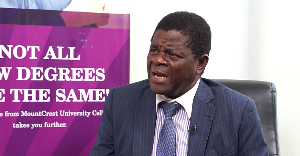Amid an ongoing debate regarding the presidential decision on the anti-LGBTQI legislation, a prominent perspective emerges from conservative quarters, deeply rooted in religious beliefs and cultural traditions.
The core of the conservative argument positions LGBTQI orientations as fundamentally at odds with divine commands and the cultural fabric of Ghana, advocating for adherence to heterosexual norms based on religious doctrines and cultural practices.
They seek to enshrine heterosexual norms within the framework of religious beliefs and cultural traditions, directly advocating for a societal model that excludes those outside these norms.
The essence of the conservative stance is a call for selective acceptance within society, suggesting a rejection of LGBTQI identities based on a set of religious moral and cultural criteria. This approach, however, overlooks the fact that society already tolerates behaviours far more harmful than the private nature of LGBTQI relationships, which have garnered minimal attention.
By pushing for conformity to specific religious or cultural standards, conservatives inadvertently promote a divisive and exclusionary social structure. This creates an environment where minority groups feel threatened by dominant societal norms that may infringe upon their rights and freedoms. Such a society risks undermining the security and freedom of those whose existence challenges the majority's principles.
The critical question arises: whom should society accept? Legislation targeting specific groups does not inherently equate to persecution, but employing a Machiavellian strategy contradicts the foundational principles of love, empathy, and salvation purportedly upheld by religious teachings.
As the world progresses toward a more interconnected global community, outdated principles that seek to exclude or criminalize individuals for their lifestyle choices warrant careful reconsideration. It is crucial to reassess outdated norms that aim to marginalize and criminalize individuals for simply living in a manner true to themselves.
Notably, issues such as the prevalence of hookups, overt prostitution, and the widespread 'side chick' phenomenon, which test the limits of cultural tolerance and religious morality, have yet to be addressed through legislation. These challenges underscore the difficulty of enforcing strict moral standards in a diverse society.
The LGBTQI community does not seek societal endorsement or imposition of their lifestyles on others; they merely aspire to live without discrimination or exclusion. As rational beings, their personal choices warrant respect. Should their actions contravene Ghanaian existing laws, they should be subject to the same legal processes as anyone else. Until such a breach occurs, they should not be deemed criminals for their lifestyle choices.
In conclusion, neither cultural heritage nor religious doctrine should dictate the inclusivity of our society. Embracing diversity and ensuring freedom for all individuals, regardless of their sexual orientation, is imperative for fostering a compassionate and cohesive community.
Opinions of Sunday, 10 March 2024
Columnist: Isaac Ofori



















